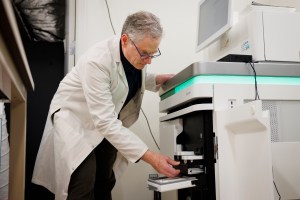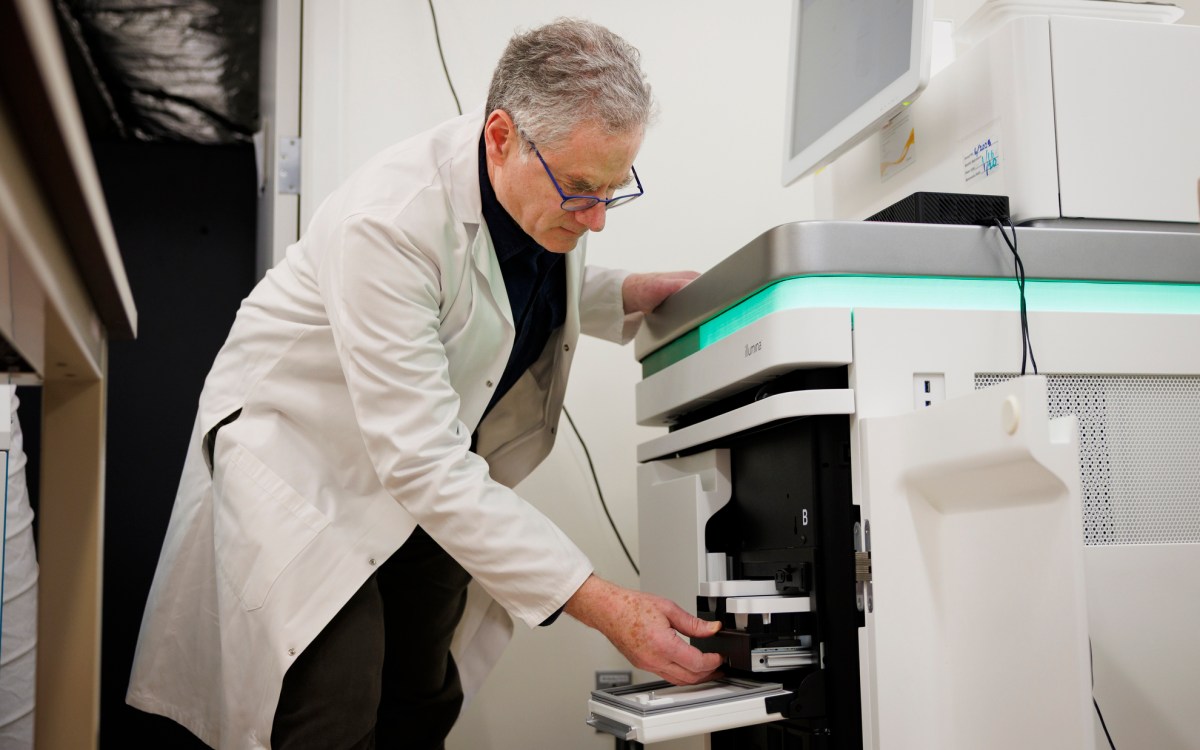Scientists create lab model of human pancreatic cancer
Could yield advances in early diagnosis, treatment of lethal disease
Currently, nearly all the 30,000 cases of pancreatic cancer diagnosed annually are fatal within a matter of months because they are too advanced to remove surgically by the time they cause symptoms. The standard treatments of chemotherapy and radiation are largely ineffective. Researchers at Dana-Farber Cancer Institute recently created bioengineered mice that develop aggressive, fatal pancreatic cancer through the same genetic mishaps that cause the disease in humans. Because the mouse-model cancers start and progress along a path that closely resembles the disease’s course in humans, the scientists believe it will be particularly useful in searching for telltale substances, or biomarkers, in the animals. These biomarkers could lead to a blood or urine screening test to catch the disease in an early and potentially curable stage in the mice and, ultimately, in humans. The report, whose lead authors are Andrew J. Aguirre and Nabeel M. Bardeesy, appeared in the Dec. 15, 2003 print issue of Genes and Development. The research was supported by the Lustgarten Foundation for Pancreatic Research.





